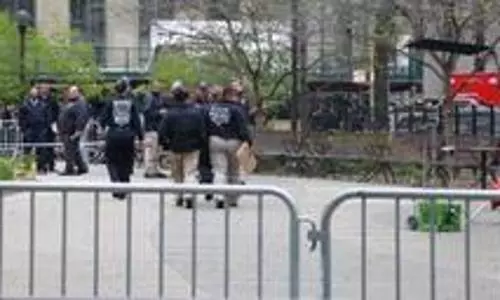
Leader of Syrian Islamist group found dead
text_fieldsBeirut: Abdel Aziz al-Qatari, the founder of the Jund al-Aqsa (Soldiers of al-Aqsa) Islamist rebel group, has been found dead in the northern Syrian province of Idleb, the Syrian Observatory for Human Rights (SOHR) reported Monday.
The SOHR said the remains of al-Qatari were found 10 months after his disappearance in Deir Sunbul, the former stronghold of the Syria Revolutionaries Front that is linked to the non-Islamist rebel group the Free Syrian Army (FSA).
Sources told the SOHR that Al-Qatari was allegedly killed by members of the Syria Revolutionaries Front, which is supported by the US.
Al-Qatari, born in Iraq, fought in the ranks of Al Qaeda in Afghanistan and was close to the late leader of the terrorist organisation, Osama bin Laden, and its current chief, Ayman al-Zawahiri.
He also fought in Chechnya against Russia and went from there to Iraq, where he formed a radical group that carried out attacks against hotels and liquor stores.
Al-Qatari was arrested and sentenced to life imprisonment during the rule of former Iraqi president Saddam Hussein.
After the invasion of US troops in 2003, al-Qatari was released and founded, along with Abu Musab al-Zarqawi, the Jamaat al-Tawhid wal-Jihad (Group of Monotheism and Jihad) to fight the US.
Al-Qatari moved to Syria months after the anti-regime protests began in March 2011 with his son, who died in clashes with the government forces, and created with Abu Mohamed al-Julani the Nusra Front.
After differences with al-Julani, al-Qatari left and formed the Jund al-Aqsa Salafist jihadi group, which operates mainly in northern Syria.






















